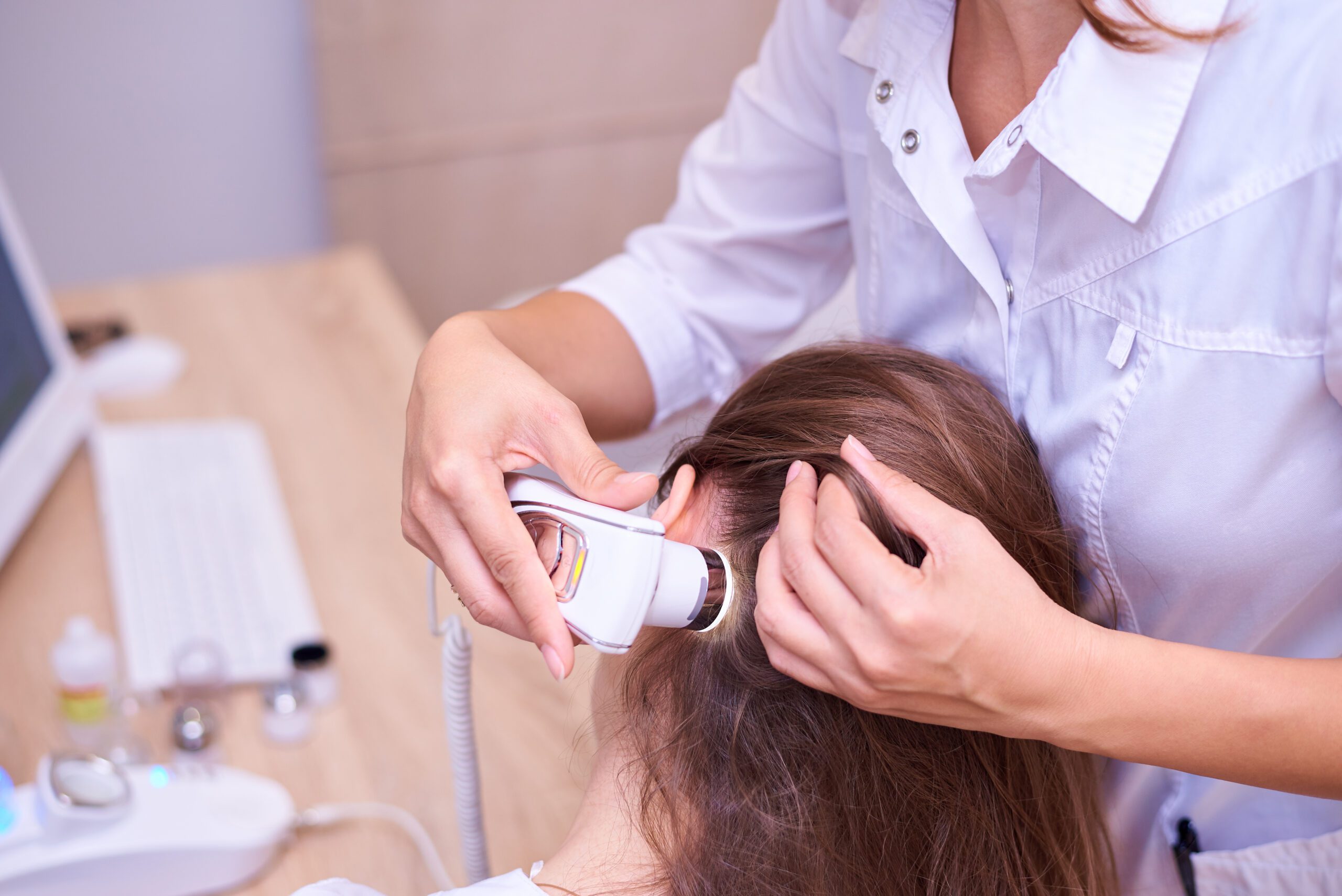The Science Behind Hair Shedding
Every day, we naturally shed some hair. However, when hair shedding surpasses hair growth, it results in noticeable thinning. This often stems from disruptions in the hair follicles, the tiny pockets nurturing hair growth.
Delving into the Causes of Hair Loss
There’s a myriad of reasons behind hair loss:
- Genetics: Often, hair loss patterns are hereditary.
- Hormonal Changes: Events like pregnancy, menopause, and thyroid imbalances can trigger hair loss.
- Hair Disorders: Conditions such as alopecia lead to sudden hair loss. Other disorders cause hair breakage.
- Medications: Some medications, especially for conditions like cancer or heart problems, have hair loss as a side effect.
The Crucial Role of Dermatology in Hair Loss
Dermatology is not just about skin; it plays a pivotal role in hair health too. A dermatologist specializes in conditions of the skin, hair, and nails. When it comes to hair loss, a dermatologist can:
- Diagnose the Cause: Through scalp examinations and sometimes skin biopsies, dermatologists can determine the root cause of hair loss, be it genetic, due to a hair disorder, or an underlying health condition.
- Prescribe Treatments: Depending on the diagnosis, a dermatologist can recommend treatments ranging from topical solutions, oral medications, light therapies, or even surgical procedures.
- Advise on Hair Care: Dermatologists can provide guidance on hair care routines, products, and habits that can either prevent or exacerbate hair loss.
The Risks of Inexperienced Doctors
Turning to inexperienced doctors or clinics can be perilous, especially if you have dermatological conditions or autoimmune disorders. Unqualified practitioners might:
- Misdiagnose the condition, leading to ineffective or harmful treatments.
- Overlook underlying health issues that could be causing hair loss.
- Use outdated or unsafe procedures, risking infections, scarring, or unnatural-looking results.
For those with autoimmune conditions, the risks are even higher. An incorrect procedure might exacerbate the condition, leading to more extensive hair loss or other health complications.
Hair Transplants and Dermatological or Autoimmune Conditions
Hair transplants can be a viable solution even for those with certain dermatological or autoimmune conditions. However, it’s essential to approach with caution:
- Alopecia Areata: Individuals with this condition can undergo hair transplants, but there’s a risk that the transplanted hair might fall out. It’s crucial to stabilize the condition first.
- Scarring Alopecias: Hair transplants can be effective, but only if the condition is inactive. Active inflammation can jeopardize the success of the transplant.
- Autoimmune Conditions: For conditions like lupus, it’s essential to ensure the disease is under control and consult with both a dermatologist and a rheumatologist before considering a transplant.
Choosing a Top Hair Loss Clinic
Selecting the right clinic is paramount for optimal results. At TopHairLossClinic.com, we pride ourselves on our profound expertise in hair restoration and dermatology. Our team is dedicated to offering bespoke solutions for every individual.
Conclusion
While hair loss is widespread, it doesn’t have to be permanent. With advancements in dermatology and hair transplant techniques, reclaiming your hair and confidence is within reach. If you’re looking for the best hair transplant clinic or seeking advice on hair disorders, speak with a Top Hair Loss Clinic expert today.


